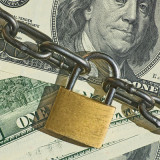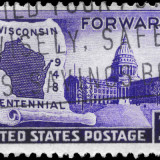When you have a debit card tied to a traditional bank account and the bank goes out of business, the federal government guarantees you up to $250,000 of the money that you have in your account through mandatory FDIC insurance.
“FDIC insurance is an important financial protection,” says Lauren Saunders, managing attorney of the National Consumer Law Center in Washington, D.C. “It ensures the safety of your money up to $250,000 if the bank fails.” So your bank could fail one day and a new bank could take over the next and the money in your bank account (up to $250,000) still would be available.
“It’s completely seamless for the customer,” says Susan Weinstock, director of Pew’s Safe Checking in the Electronic Age Project. “The only difference for the customer is a different name on the door for the bank.”
Unlike bank checking accounts, prepaid debit cards are not required to carry any mandatory deposit insurance, but the “vast majority” are offering voluntary FDIC insurance to customers, Weinstock says. Notable exceptions are some prepaid debit cards from American Express, including the American Express Target card, Weinstock says.
So what happens if a company issuing a prepaid debit card without FDIC insurance goes out of business? How and when would customers get their money back? “It generally depends on state law. States have money transmitter laws and they vary a lot state to state,” Saunders says. “It’s not as robust and seamless as FDIC insurance, how much protection you have, and how that protection works varies.”
A report from Pew Charitable Trusts titled “Imperfect Protection: Using Money Transmitter Laws to Insure Prepaid Cards” warns that “customers would be compensated with varying amounts of money, depending on the state in which they live, and some states’ residents may not be protected at all.”
And prepaid debit card customers may have to wait months as creditors in the defunct company’s bankruptcy proceedings in order to receive any money back, according to Pew. “Without a streamlined process such as the one offered by the FDIC, a consumer would likely have to navigate the legal process in order to receive their funds. Cardholders would be unsecured creditors in a bankruptcy proceeding, and may have to wait several months for the case to be resolved before having access to the money on their cards, if they get access at all,” the Pew report states.
That’s why it’s a good idea to check and see if your prepaid debit card provides voluntary FDIC insurance. And you may have to do some digging, according to Saunders. “Just because a card is issued by a FDIC member bank doesn’t necessarily mean the consumer has FDIC insurance,” Saunders says. “Just seeing the FDIC logo doesn’t guarantee it.”
Saunders suggests looking for information on FDIC insurance in a cardholder agreement and on the prepaid debit card’s website. And Weinstock recommends registering a prepaid debit card because the name of the cardholder may be necessary to implement the FDIC insurance if needed. “If they don’t register the card, it may not necessarily be insured by the FDIC.”





